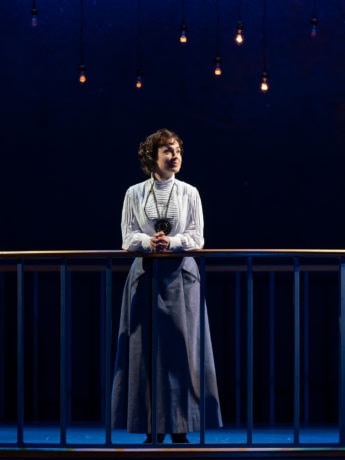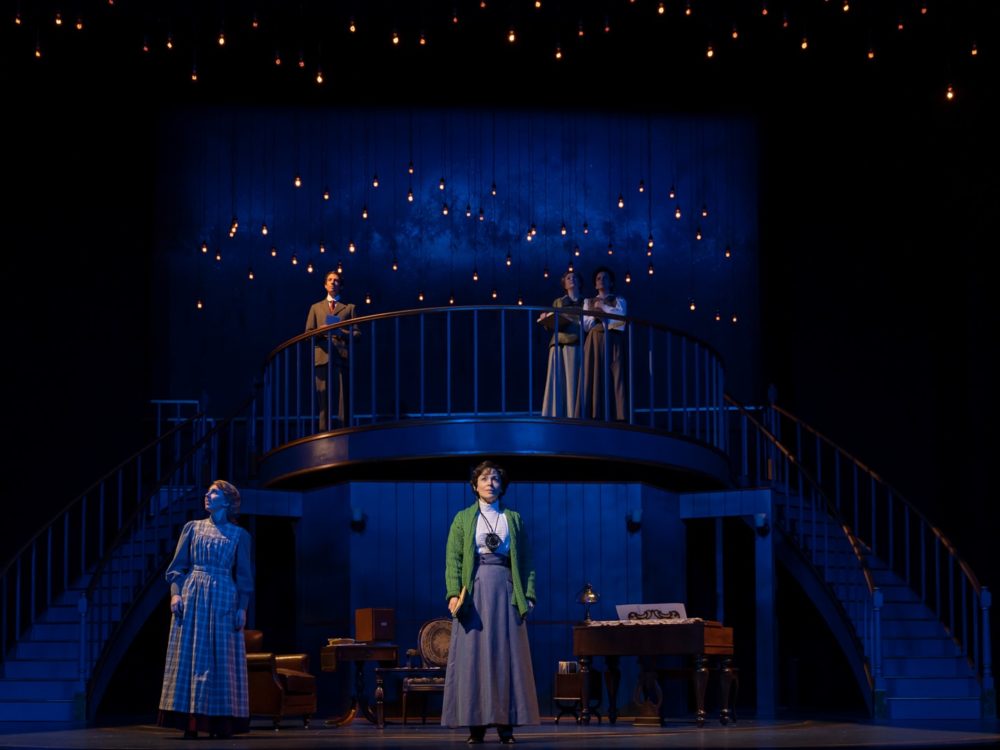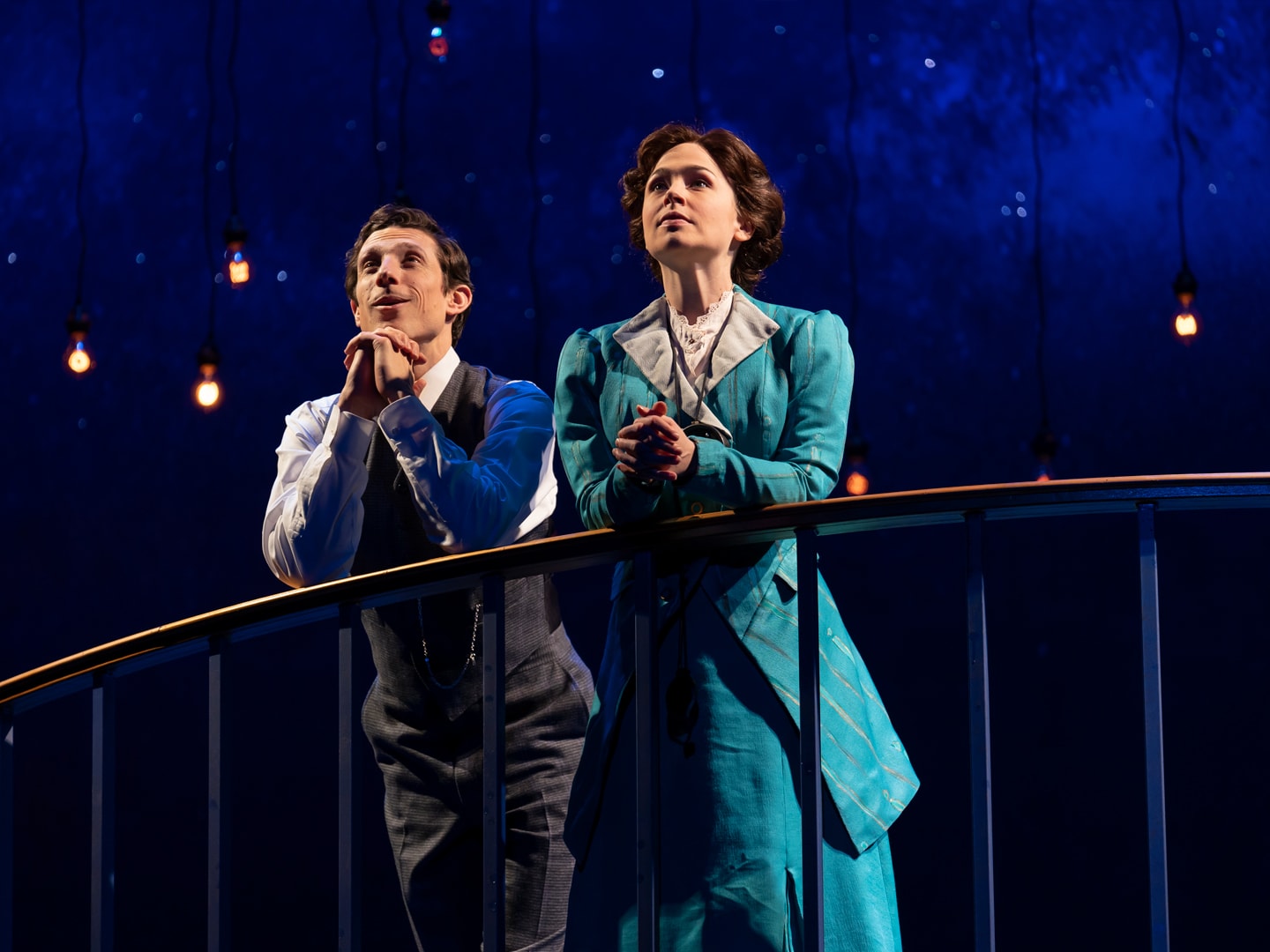When Laura C. Harris bursts onto the stage in Silent Sky at Ford’s Theatre, she is Henrietta Leavitt—hoop skirt and all—fresh out of college, brimming with confidence, and determined to find her place in the universe.

Never mind that it’s 1892, and that a woman’s place, as her family reminds her, is at home or in church. Nothing can keep Henrietta down on the farm—especially a farm in rural Wisconsin—when the world’s most powerful observatory, newly built at Harvard, has offered her an unpaid position tracking the stars.
Henrietta could easily be the grown-up version of Wendy—meaning the modified Wendy, of the recently-produced Peter Pan and Wendy at the Shakespeare Theater last month—and that’s not surprising.
Both plays were written by Lauren Gunderson, the prolific playwright known for pairing science and feminism on stage. In fact, seeing Silent Sky on the heels of Peter Pan and Wendy is like watching Never Never Land turn into the Milky Way.
Curious about the connection, I picked up the phone and called Laura C. Harris, the actor who plays Henrietta, to find out if she agreed.
“Absolutely,” she laughed, as we settled in for a long conversation about the role. “To begin with, both women are feminists. And both are budding scientists. And while one is a make-believe character”—Wendy is the invention, in 1904, of J. M. Barrie—“the other is an actual historical figure.”
Harris thinks it likely that both characters were inspired by the success of Marie Curie, who won the Nobel Prize in Physics in 1903. (Gunderson’s newest play, now playing in New York, is about the Madame herself.)

Like Curie, Henrietta Leavitt really existed, though most people—myself included—had never heard of her. She found 2,400 stars of varying brightness, measured them all, and proved that there were galaxies beyond our own. But she never won a Nobel, having had the misfortune to die, at age 53, four years before it was offered.
“I knew very little about science before this role,” Harris admitted. “But part of the fun of working on the play has been having my mind blown—on a regular basis—by the sheer magnitude of space.”
Learning the role meant coming to understand some of the thinking that underlies science. “I did a lot of research on the Internet,” she said. And Seema Sueko, the director, was a tremendous help.
“Henrietta started out not knowing what she was looking for,” Harris said, describing the process. “She picked a subject and studied it. Her instinct led her to believe that she was heading toward something important, but she didn’t know what it was. It was only after enough time and data that she finally had her Aha! moment.
“It’s a notion that’s foreign to me, but it’s part of the day-to-day work of scientific research,” she said, pointing out that the pursuit of answers, often without the questions, has led to many scientific discoveries.
Silent Sky spans nearly 30 years, and all the characters in the play undergo tremendous change. Apart from Henrietta, there are four, beginning with her sister (Emily Kester), a gifted musician who stays in Wisconsin and plays the organ at church.

Then there is Peter (Jonathan David Martin), the pompous but adoring male scientist, who is, at times, the voice of Harvard. Most delicious are the women with whom Henrietta works (Holly Twyford and Nora Achrati). Both are gloriously funny and totally supportive.
“The thing I love most about Silent Sky is the way it makes science accessible,” Harris said. “The scope of Henrietta’s work is translated into terms that anyone can understand.”
There are moments of sheer radiance in the role. One is when Harris, as Henrietta, realizes that the brightness of the stars is like music, and that the universe itself is a symphony of light.
Another is when she is vindicated. There is a moment of almost cosmic joy when—toward the end of her life— Henrietta is acknowledged as a great astronomer.
Although this is her first performance at Ford’s Theatre, Harris is a familiar sight in the DC theater world, where she recently appeared in the title role of The Heiress at Arena Stage. She and her husband, the actor Eric Messner, moved here in 2007. They met at Second City, where both studied improv. She is originally from Evanston, Illinois, and has a BA in theatre from Middlebury College in Vermont.
Silent Sky is a lovely tribute to women. Much of the credit, according to Harris, belongs to the playwright who has resurrected so many unsung achievements. As Nicole Hertvik put it in an interview in DCMTA a few months ago, “America can’t get enough of Gunderson’s feminist historical retellings.” (Click here for the interview with the playwright and here for a review of Silent Sky.)
Running Time: Two hours, including one 15-minute intermission.
Silent Sky plays through February 23, 2020, at Ford’s Theatre, 511 10th St NW, Washington, DC. For tickets, go online.




